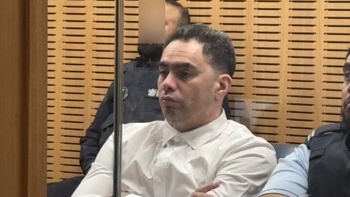Convicted child sex offender Peter Ellis has been granted leave to take his nearly 30-year fight to clear his name to the Supreme Court.
Ellis, 61, served seven years of a 10 year jail sentence for abusing seven children at the Christchurch Civic Childcare Centre in 1991.
He had been convicted, after a trial in the High Court at Christchurch in 1993, of 16 counts of sexual offending. How is now battling cancer.
He was released from prison in 2000, but has always maintained his innocence.
Today, the Supreme Court said it would hear Ellis' case.
The approved ground of appeal is whether a miscarriage of justice occurred in this case, New Zealand's highest court said.
Ellis' former lawyer Nigel Hampton QC told Heather du Plessis-Allan he's delighted by the news.
"His feeling is that significant progress has been made today, and that is enough to boost his spirits and as we all know, sometimes the psychological has an important part to play in warding off cancer."
Hampton QC says the Supreme Court are aware of Ellis' cancer and are prepared to expedite it.
Ellis appealed twice to the Court of Appeal, the second time after a referral by the Governor-General. The first appeal quashed three of his convictions, but the second appeal against the remaining 13 convictions was dismissed in 1999.
Ellis, who is understood to have advanced bladder cancer, applied to the Supreme Court for leave to appeal against his convictions last month and also applied for an extension of time to make the application.
The Crown opposed both his applications.
Before determining whether to grant leave to appeal, the Supreme Court first considered whether Ellis should be permitted to bring the application given the length of time that had passed since his second appeal was dismissed.
In its judgment, the Supreme Court noted the touchstone in deciding whether to grant an extension will always be the interests of justice.
The Supreme Court considered that, despite the delay, the interests of justice require that the application for an extension of time be granted.
At Ellis' trial the evidence-in-chief of the child complainants was given through pre-recorded evidential interviews.
"We understand that the complainants were aged between two and five years at the time of the alleged sexual offending, between five and a half and nine years during the evidential interviews and between six and a half and 10 years during the High Court trial," the Supreme Court judges, Justice Susan Glazebrook, Justice Mark O'Regan and Justice Joe Williams said in their ruling.
"There was also evidence given at trial of alleged behaviours exhibited by the complainants, including toileting and sleep-related difficulties, fear and dislike of Mr Ellis and other adult males, clothing, eating and bathing problems, fear of animals, and masturbation."
Ellis, who is understood to have advanced bladder cancer, applied to the Supreme Court for leave to appeal against his convictions last month and also applied for an extension of time to make the application.
The Crown opposed both his applications.
Before determining whether to grant leave to appeal, the Supreme Court first considered whether Ellis should be permitted to bring the application given the length of time that had passed since his second appeal was dismissed.
In its judgment, the Supreme Court noted the touchstone in deciding whether to grant an extension will always be the interests of justice.
The Supreme Court considered that, despite the delay, the interests of justice require that the application for an extension of time be granted.
At the trial, the Crown called its expert witness Dr Karen Zelas who testified that all of the behavioural symptoms identified were consistent with childhood sexual abuse.
But Dr Keith Le Page, the defence's expert witness, testified that most of the behavioural symptoms displayed by the complainants were inconsistent with sexual abuse.
"In his view the behaviour was associated with other stressors," the Supreme Court ruling reads.
After the second Court of Appeal decision, there was a Ministerial Inquiry in 2001 by Sir Thomas Eichelbaum which concluded there was no risk of a miscarriage of justice.
There have also been unsuccessful petitions to Parliament for a Royal Commission in 2003, 2008 and 2014.
Take your Radio, Podcasts and Music with you









